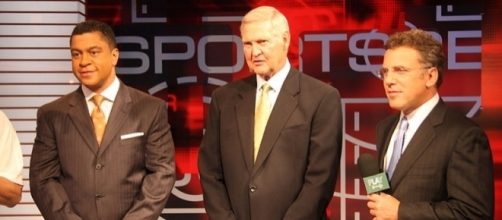I'm a lifelong Sports fan -- let's get that on the table right away. I like to see professional athletes do great what I've tried my whole life to do . . . well, not great.
I admit it -- I watched the third Super Bowl, won by the New York Jets, and saw the New York Mets win their first World Championship, I watched Jimmy Connors and John McEnroe battle for supremacy in professional tennis in the 1970s and 1980s, and saw Bill Walsh and the San Francisco 49ers change the way professional football is played in the 1980s and 1990s..
As sports grew in popularity and importance over the years, so did services that reported and analyzed what we were seeing and listening to, like ESPN.
ESPN was in the right place at the right time -- the ascent of cable television -- and became a staple in most U.S. households with its frequent recaps of the day's sports results.
Hitting the wall
But now, after decades of growth and expansion to multiple cable channels and live coverage of games across the country, ESPN appears to have hit the wall. No wonder. There are so many people working for that company, owned by The Walt Disney Co., it's a wonder anyone knows who's supposed to be where. at any given time.
ESPN announced layoffs Wednesday of about 100 on-air people, including some well-known names like ex-quarterback turned on-air analyst Trent Difler and legal analyst Roger Cossack, according to the San Francisco Chronicle newspaper.
But for all the well-known names on the layoff list, and there were many, there were many more names that I never saw or never heard, and I've been watching ESPN pretty much every day for decades.
Sorry to say
Sorry, Charles Arbuckle, Brian Bennett, Jeff Biggs, Eamonn Brennan C, Jim Caple, Marysol Castro and David Ching -- I'm sure you all are knowledgeable in your fields and are capable sports journalists, but I've never heard of any of you. And, like I said, I've been watching ESPN for decades.
How about anchor Chris Hassel, soccer writer David Hirshey, columnist Johnette Howard, reporter Chantel Jennings, radio host Danny Kanell, hockey writers Pierre LeBrun and Joe McDonald or college football writer Max Olson?
Nope, nothing. Can anyone say 'overstaffed?'
I suppose it mattered where in the world you were watching from after ESPN grew exponentially, but I don't know that for sure and it almost certainly didn't matter at the beginning -- before ESPN began trying to do everything sports-related for everybody.
On the decline?
Clearly, ESPN grew too big and too expensive, even for the deep pockets of Disney. The sports network suffered its first decline in profits in 14 years in 2016, the newspaper said, even though it is still immensely profitable. But it appears to be going the way of cable television in general and not attracting millennials, the next big consumer demographic.
ESPN laid off nearly 300 staffers in 2015, and there may be more to come in the near future unless something changes.
ESPN is said to be experimenting with mobile applications and programmers are certainly looking for a new disruptive idea similar to the one that launched the network in 1979.
What does ESPN stand for? Now, nothing -- but until 1985, it stood for Entertainment and Sports Programming Network.

